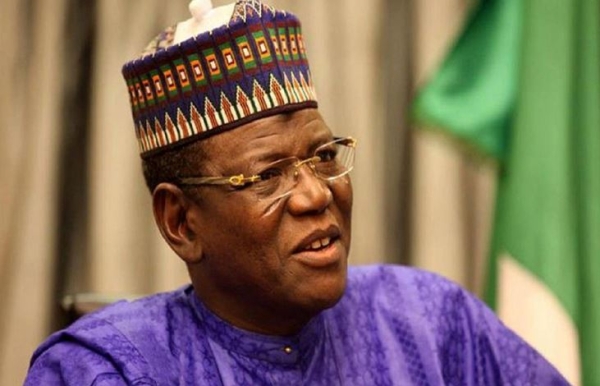Sule Lamido, a former Minister of Foreign Affairs, has shed light on the behind-the-scenes developments that led to the eventual construction of the ministry’s permanent office complex during President Olusegun Obasanjo’s administration (1999–2007).
Lamido’s account of an incident involving the award, suspension and lifting of the suspension on the building contract is contained on pages 197- 202 of his autobiography, “Being True To Myself,” unveiled to the public on May 13.
He recalled that the Federal Executive Council (FEC) had at a meeting presided over by President Obasanjo, approved the contract for the building.
According to him, a firm – C. Cappa came highly recommended for the job by members of the council, including the then Minister of Defence, Lt. General TY Danjuma, and his Finance counterpart, Adamu Ciroma.
Both based their recommendations on the company’s solid reputation and the fact that it built the Federal Ministries of Defence and Foreign Affairs in Lagos. In fact, the defence building was rated the best edifice at the time.
However, when he left the country for a foreign assignment two days later, Obasanjo suspended the contract.
The then minister said he learnt of the President’s decision when he returned and was upset with what Obasanjo wrote on the council memo.
Lamido said, “Before I left the office to the Villa, I had gone home at the Ministers’ Hill in Maitama, where some of the ministers had their official houses. It was during the Muslim holy month of Ramadan.
“The sun had set, yet I could not eat very well, because I was in pain. After the Isha prayer, as I was about to leave for the Villa, I performed two raka ‘at prayer and made a sincere plea to Allah, the Almighty God, saying:
‘Well, I am going out now to meet Obasanjo, the Nigerian President. I am leaving this house as a Minister in government, but do not know if I will come back still as a Minister after meeting the President.
‘Oh Allah, give me the strength and courage to stand up to whatever he says. Don’t allow me to fear losing my position and abandon my principles. Please, Ya Allah, strengthen my faith.
‘I’m leaving this house as a Minister; I may not come back as a Minister. I have no problem with that, but God guide me, save my faith. ‘ That was how I left home for the meeting with the President.’”
After registering his displeasure, Lamido told the President, “’…Something wrong must have happened. Sir, the Chairman of the company that awarded the contract is your friend, Shonekan. He is your townsman and also former Head of the Interim National Government. There is no way I could have accepted money from him.
‘So, sir, if you feel I am beginning to fail you, as a Minister, that you have lost faith and all confidence in me, please don’t disgrace me in public like that. Call me and tell me directly; and I will instantly leave your government.
‘But so long as I remain your Minister, I must in character and action be seen to be one, exercising the full functions of that office. I should have the full authority, because I cannot be just a shadow. I will not, sir. I must be able to serve as your Minister with full conviction and commitment, while commanding your trust and total respect. Otherwise, I shall not be there anymore, sir.
‘Whatever you might have heard about the contract, you should have called me to explain. Instead, you went to the same Council and announced that the contract had been suspended. How would you expect my other colleagues in council to see me now?'”
In response, President Obasanjo said, “’Okay, Sule, tomorrow at the Council meeting, I will lift the suspension on the contract. And it will go ahead. Are you happy now?’ I said, ‘I am happy.’
“Obasanjo, in his characteristic manner, replied, ‘Stupid boy, get out of my sight.’ I ran out laughing but full of gratitude to Allah for answering my supplication.”
The contract subsequently went ahead and was completed.


